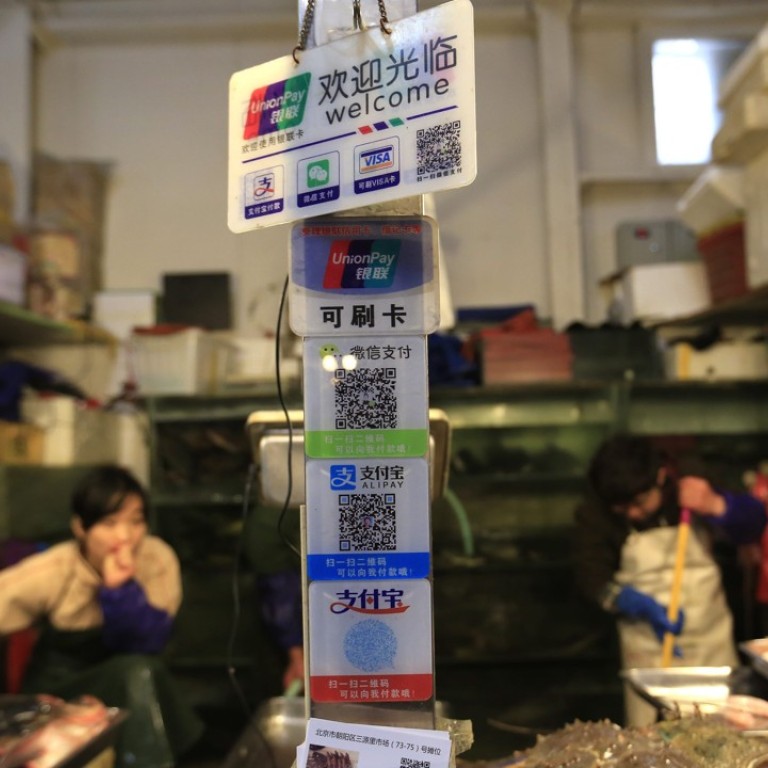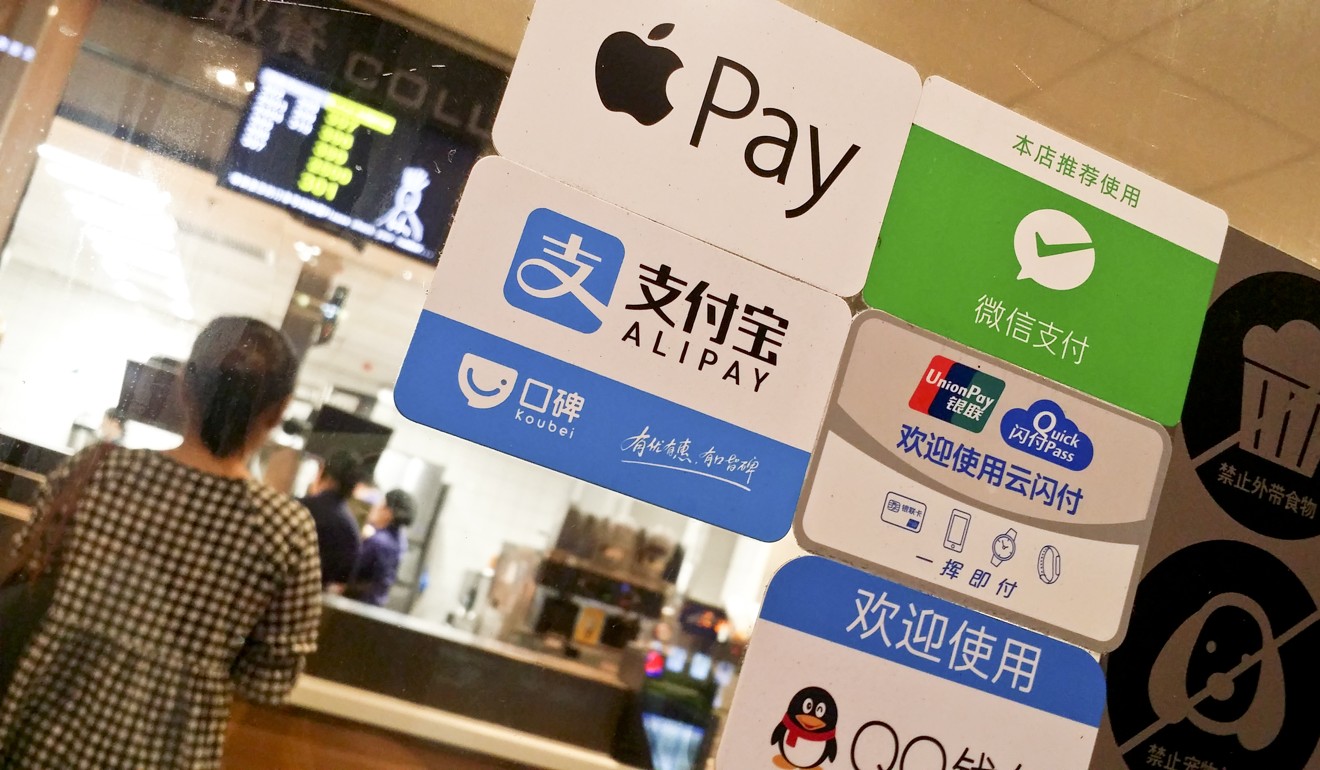
Beijing leads the way for China’s cashless generation, study finds
Beijing is China’s “smartest” city for cashless payments, a new study has found, with consumers using e-wallets everywhere from vegetable markets to hotels.
The study released on Monday was the result of a 34-city survey by tech firm Tencent, French market research firm Ipsos and Renmin University’s Chongyang Institute for Financial Studies.
The survey asked more than 6,500 people about their payments for a range of goods and services, including takeaway food, restaurant dining, telecommunications and transport, state-run Xinhua News Agency reported.
Beijing topped the list for penetration of cashless payments, followed by Shenzhen and Guangzhou in Guangdong province, and Shanghai.
Two other Guangdong cities – Dongguan and Foshan – also made it into the top 10, Xinhua reported.
About half of those surveyed used cash for about 20 per cent of their monthly spending, and four in 10 carried less than 100 yuan (US$14.84) in cash when they left the house.

About seven in 10 respondents said they could go for more than a week with just 100 yuan in cash, and 84 per cent were comfortable going out with just their mobile phone to pay their way.
Beijing office worker Xiao Yi said he often went a week without using cash because he could use his mobile from breakfast to dinner. Convenience stores and even vegetable vendors accepted WeChat or Alipay, an online payment platform owned by Alibaba Group, which owns South China Morning Post, he said.
He also got around the city using a pre-paid subway card or a shared bicycle, which also ran on mobile payments.
Xiao said he only started putting 100 yuan in his pocket after he couldn’t get into a park earlier this year.
“We took our children to a park one Saturday but soon realised we didn’t have any cash for the tickets. They accepted only cash,” he said.
Another couple at the park had the same problem, Xiao said.
“We all asked a man for help and he took out his wallet to pay for the tickets. We then sent him some money over our phones. It was so awkward and embarrassing,” Xiao said.
But for senior citizen Sun Meixia cash is the only way to go.
“I prefer a bank book to a bank card. I don’t have a smartphone. I withdraw my pension every month to pay my bills. Everything is very clear,” Sun said.

